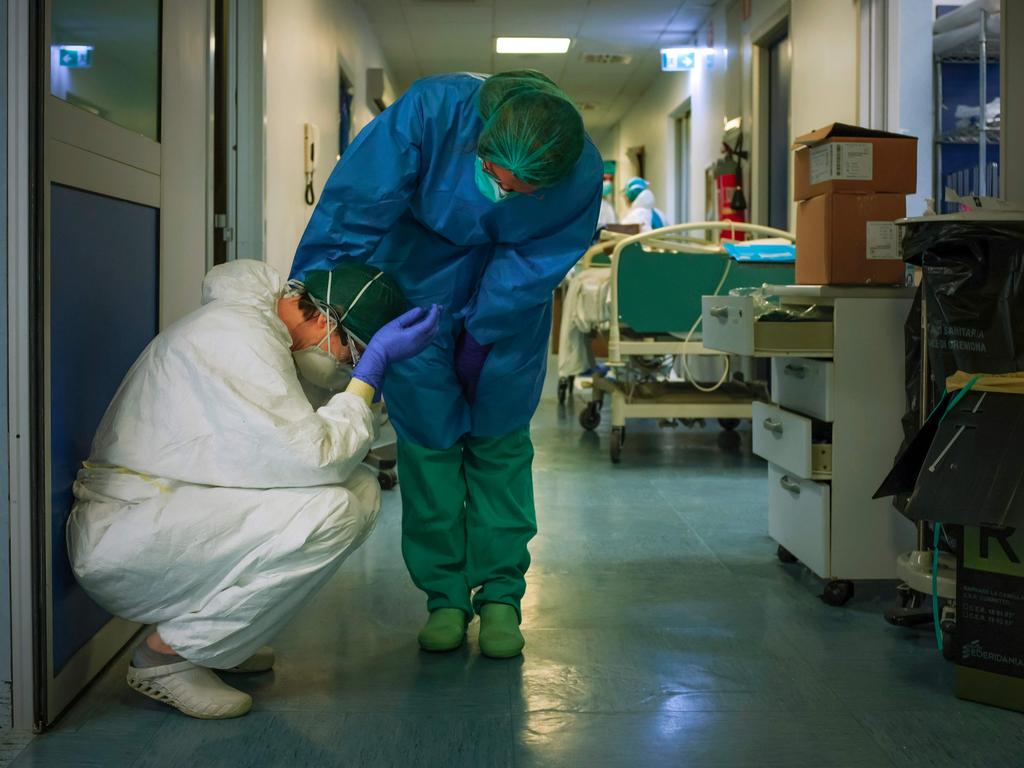Coronavirus Australia: Why COVID-19 is ruining your sleep
If you've finding it hard to switch off at night or spending your time in bed tossing and turning, you're not alone. Here's how to fix it.
It's safe to say life has been a little strange for most of us lately.
With the coronavirus pandemic turning our working lives upside down and strict social distancing measures being introduced, our regular routines have been tossed out the window.
Despite the majority of us having more rest time at home than ever before, many people are reporting struggling to get some shut eye and having weird dreams – and there's a very good reason why.
is anyone else having really weird dreams in quarantine?
— Anj (@anj3llyfish) March 31, 2020
Coronavirus has made my sleep pattern EMBARRASSING
— Jamie (@jmemc55) April 2, 2020
According to sleep expert Olivia Arezzolo, living through a major world event like the coronavirus pandemic is “extremely problematic” for getting a good night's rest.
"It creates difficulties to fall and stay asleep as well as limiting the depth of our sleep," she told news.com.au.
RELATED: Follow the latest coronavirus updates

“First up, we’re more anxious than ever — the primary factor in being unable to fall asleep. And as there is no clear-cut end in sight, it can contribute to a chronic state of stress.”
Strange dreams or nightmares are also the result of high stress and anxiety, “particularly if (you) are without a healthy outlet” such as exercise or meditation, Ms Arezzolo explained.
Poor sleep can cause a myriad of problems including brain fog, an inability to stay focused, moodiness or anxiety, lack of concentration and even recurrent flu or colds.
“Essentially, our brains are hardwired to be alert in a state of stress – tracing back to our ancestors who had to stay awake to fight off a bear, for example," Ms Arezzolo said.
“The problem here is that the stress we are currently experiencing doesn’t seem to be going away.”
RELATED: How sleep can boost your immune system

As well as the stress of the coronavirus pandemic, working from home could also be “absolutely" disruptive for our sleep, Ms Arezzolo said.
"We no longer have a definite end between work and home life, and the tangible instruments you use for work (e.g. a laptop) can still be seen while you’re ideally relaxing at home," she explained.
“However, as your brain has a psychological association that laptop equals work and work equals stress, the laptop becomes a signal for stress. This can further exacerbate difficulties to ‘switch off’.”
RELATED: Do I have a cold, flu or coronavirus?
WAYS TO IMPROVE YOUR SLEEP
Get moving: Working out is key for managing your mood and reducing stress. “Thirty minutes moderate intensity exercise has been shown to reduce anxiety by 50 per cent,” Ms Arezzolo said.
Keep a routine: Maintaining a morning and evening regimen is crucial to a good night's sleep. “A morning routine with meditation and exercise (at least) is critical: Both factors are clinically shown to mediate stress as they change the structure within the brain's stress centre," Ms Arezzolo said.

RELATED: What are the coronavirus symptoms?
In the evening you should make every effort to turn off from working and technology. “At 9pm switch off from social media, put on a tranquil soundtrack, jump in the shower and pack up from the day,” Ms Arezzolo suggested.
“After this time, do not get back on your phone – instead, choose a calming activity like reading (nothing coronavirus related), mediation or gentle yoga.”
Try supplements: “Magnesium is ideal for sleep and stress, so great for those struggling with either condition,” Ms Arezzolo said.
Sniff your way to a good night's sleep: Ms Arezzolo recommends using lavender throughout the day as it's clinically shown to reduce anxiety by 46 per cent.
“Less anxiety through the day facilitates healthy sleep in the evening,” she said.
For more sleep tips or information about Olivia Arezzolo 's Peak Productivity program visit her website or follow her on Instagram




